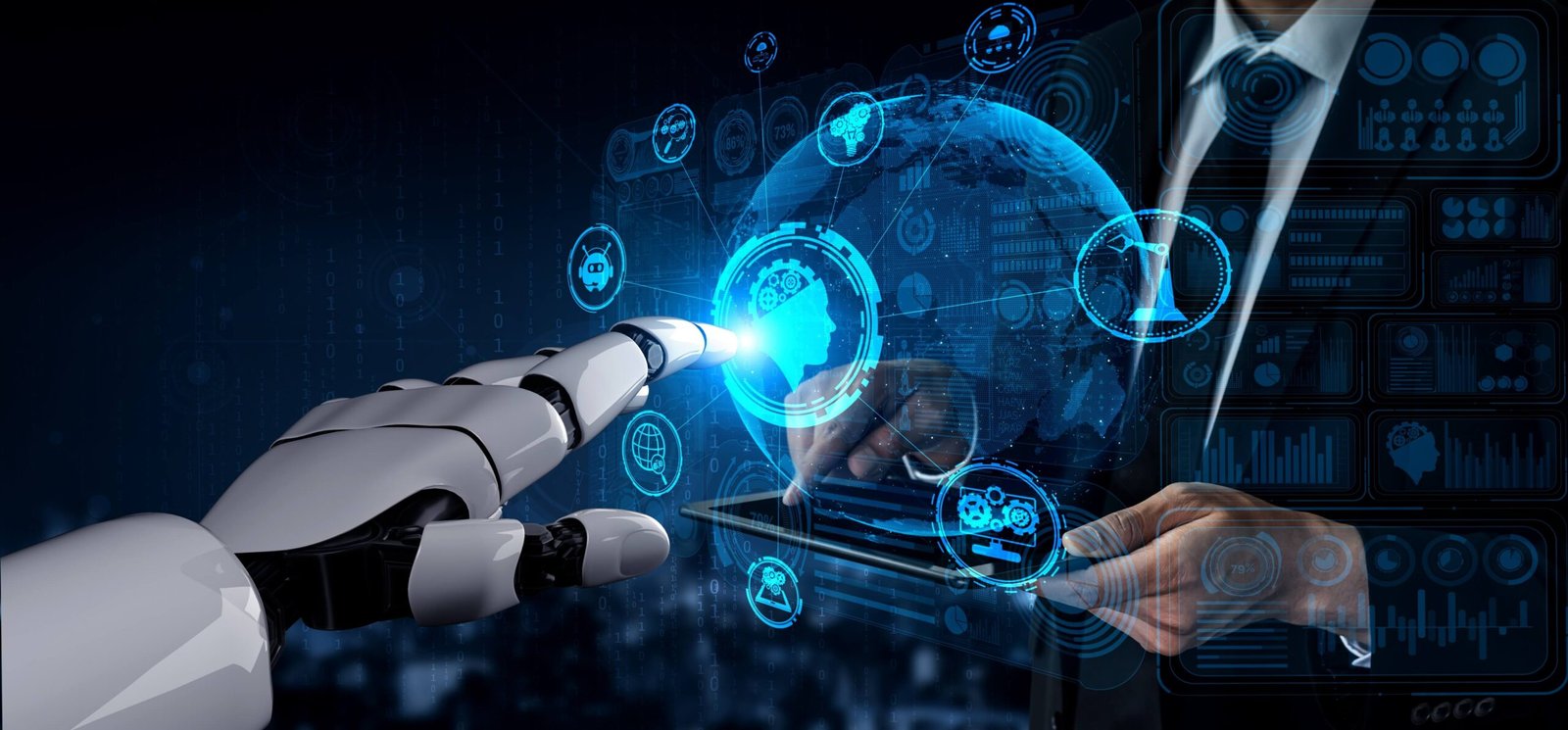In the 21st century, few forces have shaped our world as profoundly as Artificial Intelligence (AI) and automation. These technologies are not just augmenting human capabilities—they are redefining industries, economies, and daily life. From healthcare to education, manufacturing to finance, AI and automation are driving unprecedented transformations.
Understanding AI and Automation
Artificial Intelligence refers to machines designed to mimic human intelligence. This includes tasks such as learning from data (machine learning), recognizing patterns (computer vision), understanding language (natural language processing), and making decisions.
Automation, on the other hand, involves using technology to perform tasks without human intervention. While traditional automation focused on mechanical tasks, modern automation integrates AI to handle complex, cognitive functions.
Together, AI and automation are creating systems that can learn, adapt, and perform a wide range of tasks more efficiently than ever before.
Transforming Industries
Healthcare
AI is revolutionizing healthcare by enhancing diagnostic accuracy, personalizing treatment plans, and accelerating drug discovery. Algorithms can analyze medical images, such as X-rays and MRIs, detecting abnormalities that might be missed by the human eye. AI-driven tools assist in identifying patterns in patient data, leading to more accurate diagnoses and tailored treatment strategies. Additionally, AI is streamlining administrative tasks, allowing healthcare professionals to focus more on patient care.
Education
In education, AI and automation are enabling personalized learning experiences. Intelligent tutoring systems adapt to individual student needs, providing customized lessons and feedback. Automation handles administrative tasks like grading, freeing educators to engage more with students. Moreover, AI tools assist in identifying students at risk of falling behind, allowing for timely interventions.
Manufacturing
The manufacturing sector is experiencing a shift towards smart factories, where AI and automation optimize production processes. Robots equipped with AI perform tasks ranging from assembly to quality control, ensuring precision and efficiency. Predictive maintenance powered by AI anticipates equipment failures before they occur, reducing downtime and maintenance costs.
Finance
In finance, AI is enhancing risk assessment, fraud detection, and customer service. Machine learning algorithms analyze transaction patterns to identify fraudulent activities in real-time. AI-powered chatbots provide 24/7 customer support, handling inquiries and transactions. Additionally, AI assists in portfolio management by analyzing market trends and making investment recommendations.
Transportation
AI and automation are paving the way for autonomous vehicles, promising safer and more efficient transportation. Self-driving cars utilize AI to navigate, interpret sensor data, and make real-time decisions. In logistics, automation streamlines supply chains, optimizing routes and inventory management. AI enhances traffic management systems, reducing congestion and improving urban mobility.
Economic Impacts
The integration of AI and automation is driving significant economic changes. While some jobs may be displaced, new roles are emerging that require advanced technical skills. The demand for AI specialists, data scientists, and automation engineers is on the rise. Additionally, businesses adopting AI and automation experience increased productivity and reduced operational costs, contributing to economic growth.
Ethical Considerations
As AI and automation become more prevalent, ethical concerns arise. Issues such as data privacy, algorithmic bias, and the potential for job displacement need to be addressed. Ensuring transparency in AI decision-making processes and implementing policies to manage workforce transitions are crucial steps in mitigating these concerns.
The Future Outlook
Looking ahead, AI and automation are expected to continue transforming various sectors. Advancements in AI research, such as quantum computing and neuromorphic engineering, may lead to even more powerful and efficient systems. Collaboration between humans and intelligent machines will likely become the norm, with AI augmenting human capabilities rather than replacing them.
Conclusion
Artificial Intelligence and automation are not just technological advancements—they are catalysts for a new era of innovation and efficiency. By embracing these technologies responsibly, society can unlock their full potential, leading to improved quality of life, economic prosperity, and a more connected world.

Leave a Reply